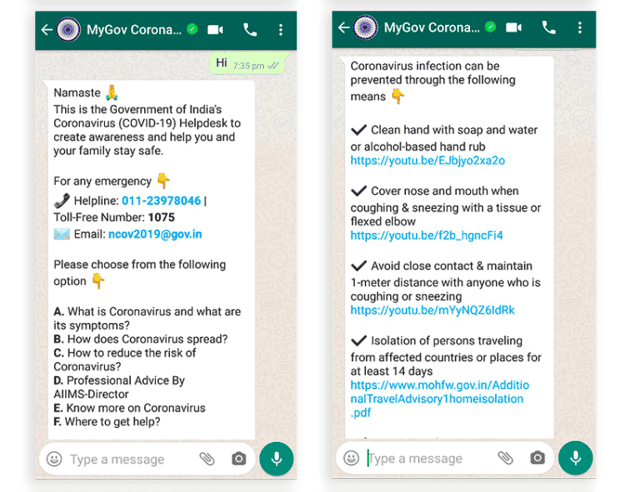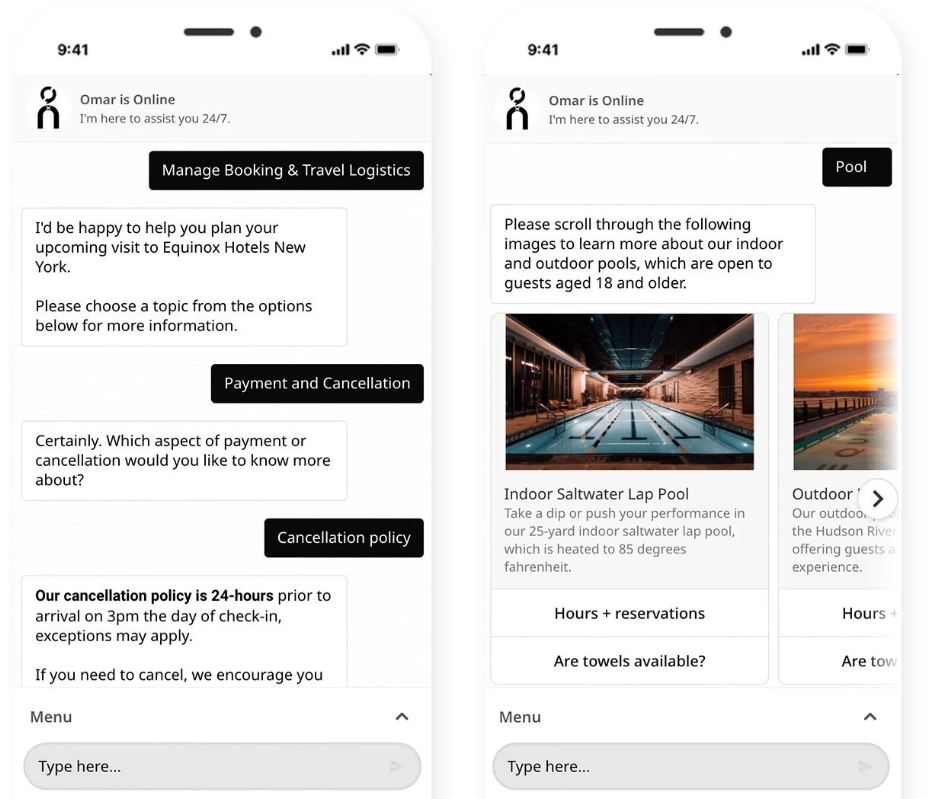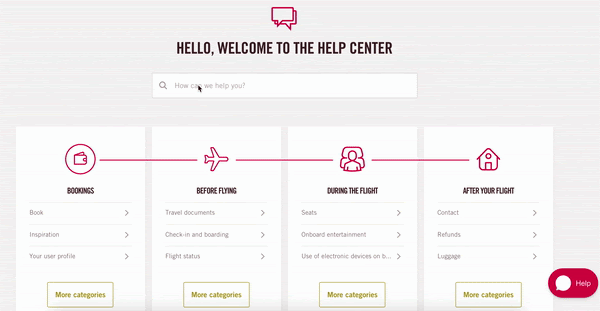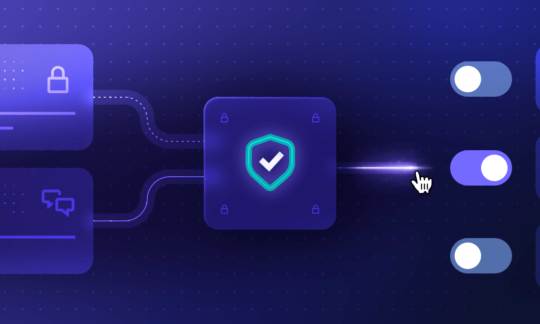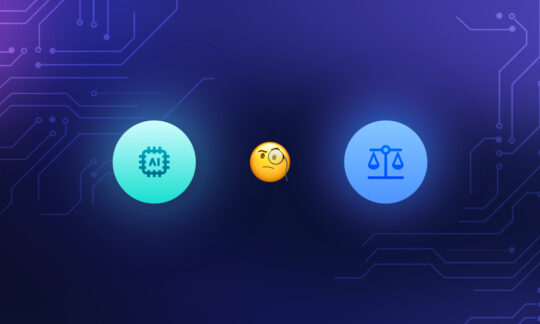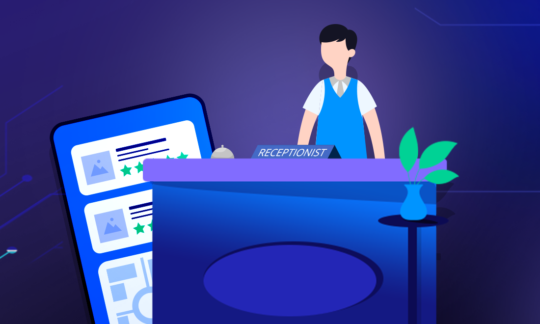Top Industries Benefiting from Conversational AI
Table of contents
- Business Success Statistics with Conversational AI
- Conversational AI Chatbots Versus Rules-Based AI Chatbots
- Chatbot Applications for Banking
- Chatbot Applications for Insurance
- Chatbot Applications for Healthcare
- Chatbot Applications for Utilities
- Chatbot Applications for Hospitality
- Chatbot Applications Use for Airlines
- Chatbot Applications Use for Logistics
- Examples of AI Chatbots at Work in Logistics
- Conclusion
- Article Summary
To quickly summarise the explosiveness of Artificial Intelligence’s (AI) bots’ presence in the business world isn’t easy, so maybe a recent Academy Award-winning movie title does it best. AI seems to be reaching into “Everything, Everywhere All at Once.”
Perhaps this is an understatement, but AI’s use, especially conversational AI, is not only being implemented in the major industries of banking, insurance, healthcare, utilities, hospitality, airlines, and logistics, but it is also in lower-tier industries like food, real estate, retail, manufacturing, etc. That implementation has been met with great success.
Business Success Statistics with Conversational AI
Recent statistics for 2023 illustrate the effectiveness of AI in different industries. In 2017, for instance, the global chatbot marketplace was valued at 370 million dollars. That value is only expected to grow exponentially in the years ahead. The reason for this is clear.
On average, businesses that implemented conversational AI chatbots saw a 67% increase in sales. Here are some other key numbers for conversational AI’s growing popularity.
- 90% of businesses stated improvements in complaint resolution.
- 80% of businesses said they witnessed enhanced call volume processing.
- 80% of CEOs intend to manage customer interactions with conversational AI technology.
- 64% of businesses believe chatbots will enable them to have more customised and personalised customer support.
Conversational AI Chatbots Versus Rules-Based AI Chatbots
Many companies use either conversational AI chatbots or rules-based chatbots in their businesses to address customer and client needs. Sometimes they might use a combination of both. For a better understanding of what both types of chatbots do, see the explanation below.
Rules-Based AI Chatbots (Static). They are usually text-based. A customer or client may type a question into a chat window and a set of basic questions or answers might be generated. Usually, rules-based chatbots feature on a company’s website, usually its landing page. Their responses are very limited, and their answers come from a predefined set of parameters.
Conversational AI Chatbots. They are more sophisticated and use natural language processing (NLP) and machine learning (ML) to respond to customers or clients. Both factors allow conversational AI chatbots to understand various types of information, make decisions, and produce responses in a human-like interaction. They can answer frequently asked questions, troubleshoot issues, and even make small talk while accessing audio, video, and text.
That is why conversational AI chatbots have become such a centrally important aspect in different industries. But the best sectors of the business world benefitting from conversational AI, with use cases to support that success, are banking, insurance, healthcare, utility companies, hospitality, airlines, and logistics.
Chatbot Applications for Banking
The use of conversational AI bots has improved the banking industry so that communicating, conducting business, and collaborating happen without mishaps. Customers like using them because they can quickly and easily report possible fraud on their bank cards, increase their credit card limit, or see all their recent transactions.
- conversational AI bots create memorable experiences.
- Enhance and bolster brand loyalty.
- Increase revenues.
On the business side, banks can eliminate repeated tasks, which leads to reduced costs, increased efficiency, and higher productivity. All that savings can go into innovation to make banks (and banking) more effective in the future.
Here are six of the most prevalent bots used in banking:
- FAQ Bot: Makes public information easily available without the need for account information.
- Q-jump Bot: It can take a message, schedule a callback, or respond to a customer’s need without the customer waiting on hold for an answer.
- Account Bot: Explore customer account details 24/7.
- Payment Bot: Inform customers of an upcoming payment and the due date, confirm payment and receipt, or authenticate customers so they can access resources securely.
- Chargeback Bot: A way for customers to understand all recent charges.
- Onboarding Bot: Customers can open a new bank account, apply for a credit card, or apply for a loan. All steps can be automated without the customer going to the bank or without talking to a customer service agent.
Chatbot Applications for Insurance
The insurance industry, much like the banking industry, is steeped in policies and procedures that lead to repetitive/task-oriented service of clients. Additionally, the insurance industry also engages with its customers via apps, social media, and websites.
But insurance, like banking, needs customers to survive. The industry’s old approach of educating consumers about their products and services isn’t always successful. That’s why 74% of insurance buyers state they would purchase insurance from a company that is not strictly an insurance company.
Conversational AI bots can make the process of buying insurance quick and offer customers the best price. A perfect use case is if a consumer wished to buy dog insurance. A chatbot can explain the types of coverage per various breeds of dogs, mention coverage for pre-existing conditions, and assist with claims.
Within the insurance industry, AI bots and voice bots can help customers avoid fraudulent situations and take on those repetitive tasks to make internal operations flow smoothly. The most effective bots in Insurance should be:
- Conversational,
- Transactional,
- Reliable,
- Multi channeled (not hampered by language or a customer’s choice of device),
- Secure – 40% say data security boosts confidence in an insurer.
Chatbot Applications for Healthcare
If any industry deserves the assistance of conversational AI bots, it must be healthcare. Healthcare workers are usually understaffed and overworked. In most cases, the time they have available to make appointments, fill out or file paperwork, or attend to the needs of specific patients is limited.
When the pandemic hit in 2020, a lot of misinformation circulated around that healthcare workers didn’t have a way to correct or debunk. Even in times not seen as critical, conversational AI bots can assist in a positive way. For instance, they can:
- Answer common questions about a disease, health condition, or even an epidemic situation.
- Raise awareness about health-related concerns.
- Disperse necessary information to the public via websites, email, social media, messaging apps, etc.
A conversational AI bot called MyGov Corona Helpdesk for India hosted by WhatsApp is an excellent use case where healthcare and technology came together to answer people’s questions about Covid19. Instead of inundating hospitals with visitors or making calls, people were greeted by this bot that supplied answers. In just 48 hours, 5 million conversations were processed.
In addition to easily broadcasting vital healthcare information, conversational AI bots can assist healthcare professionals in other ways, such as:
- Appointment scheduling,
- Customer care,
- Health tracking and management (by identifying symptoms and consulting with medical staff online),
- Patient assistance.
Chatbot Applications for Utilities
Much like healthcare, utilities are accessed on an as needed basis, primarily to have the power turned on, turned off, restored after a storm, or to pay a bill. These are all common occurrences at utility companies. Conversational AI can benefit utility companies by resolving these queries quickly and efficiently due to its 24/7 availability.
The utility industry is considered a low performer in terms of its technology reach. Other areas where conversational AI bots can benefit utility companies are to make them more efficient by placing customer service as a higher priority. Here are three other key ways AI bots can assist utility companies.
- Customer Care: Conversational AI bots can explain power outages, prices and rates, and show customers peak periods when energy consumption is at its highest and lowest.
- Simplify Account Management: Customers can view billing, usage, services, and alerts all without involving a human customer service agent.
- Quick Access to Vital Information: This can include protection from impending severe weather changes, eco-friendly practices to reduce energy usage, and understanding the difference between residential and business customers.
Just as for the banking industry, several trained AI bots can be deployed to address every area of customer concern. One such bot is the SmartMeterBot that can be used to help customers monitor their energy usage. Much like a traditional meter, a Smart Meter transmits energy usage data to a utility company every 15 seconds.
Chatbot Applications for Hospitality
Usually, hotel staff is small and, at times, it seems almost impossible to find someone to answer a question or assist in some other way because they are overburdened with other tasks. Conversational AI bots can resolve most of those queries so guests have a positive experience. While AI bots don’t have a large presence in the hospitality (hotel) industry, when they are used, they can bring value in three significant ways.
An AI bot can function like an additional member of the hotel’s staff but one that works 24/7 and offers multi-language support. That is almost an essential requirement for hotels that may receive a lot of international questions or guests.
A prime use case is from the Hotel Equinox in New York. Its bot called Omar not only answers basic guest questions and supplies general information about the hotel, but also makes a booking and helps guests pay for their room.
For a high-end hotel such as Equinox, customers expect a high level of service, personalisation, and quick resolution to questions. Conversational AI can supply that in droves, which means loyalty to the hotel is favoured.
Chatbot applications can also assist guests in these additional use case scenarios.
- Personalised recommendations
- Visa eligibility
- Making hotel reservations or bookings
- Answering FAQ
- Sending personal notifications.
Chatbot Applications Use for Airlines
The commercial airline industry has been reliant on technology for many years. It uses websites, email, apps, and social media to connect with its customers. As a result, it’s rare that a customer will interface with an airline employee unless it’s during check-in, with the stewards on the plane, or if there is a problem, such as making other arrangements as the result of a canceled flight, a lost bag, etc.
The airline industry’s use of chatbots, though, has improved and enhanced customer service to make them more efficient. Here are eight use case areas where Chatbot applications benefit the industry and its customers.
- Automating the search and then booking a flight
- Update notifications
- Sell promotions, upgrades, and other services
- Track and claim bags
- Conversation-based check-ins
- Request for special needs assistance
- Flight payments, refunds
- Personalise offers
Imagine it’s 3:00 am and you have a flight in a few hours. Suddenly, you realise you have a question about your flight that needs to be answered before you head off to the airport. Placing a call to the airline or travel agent probably won’t yield much, but a trip to the airline’s website might
Once you are on the airline website, you can jump to the help page and retrieve an answer from a chatbot in a few seconds by using predictive search functionality. That is exactly what southern European airline Volotea offers to its customers.
Chatbot Applications Use for Logistics
The receiving, shipping, tracking, and delivery of packages and other goods are the main business of logistics departments and the industry. More times than not these shipments are time sensitive because they may contain perishable items, such as produce and other food items. Logistics benefits from the use of conversational AI and other chatbots to ensure shipped items reach a desired destination on time.
There are many examples of how effective chatbot applications in logistics can be. Here is a list of nine of the most relevant use cases that help logistics operations run efficiently.
- Track shipments
- Delivery requests
- Predictive analytics for future trends and events
- Automated robots for smart management of operations in warehouses to sort, move, and track inventory
- Enhanced customer service
- Customer personalisation
- Product recommendation
- Product inspection to avoid damage to freight
- Route and weather prediction and forecasting
Examples of AI Chatbots at Work in Logistics
Based on a survey taken back in 2017, logistics companies stated that 6,500 hours of productivity were lost due to staff being occupied with daily busy work. These are tasks like processing papers, modifying purchase orders, and responding to supplier questions. All tasks that AI and chatbots could handle easily.
While implementing AI and chatbots into a company is not a perfect solution to increase productivity, they can help in these logistics and supply chain management areas.
- Operational procurement
- Supply chain planning and forecasting
- Warehouse management
- Quick and accurate shipping
- Optimal supplier selection
One logistics company that has had great success with the implementation of chatbots is Zebra Technologies. Based in Lincolnshire, IL in the United States, the company uses AI for its logistics and supply chain management. AI assists it in optimising its loading process so that less air is shipped, which reduces its operating costs. AI also helps Zebra Technologies with faster parcel processing and reduced damage and loss. Most importantly, AI improves worker safety.
Conclusion
The benefits of using conversational AI and other chatbots have made a stunning impact on the business world. AI technology has improved every major industry and even industries like travel, real estate, retail, education, manufacturing, auto, and food.
Check out SentiOne Automate to learn about our low-code platform that is designed for enterprise needs and book a demo with our team to see how our AI features can benefit your business.
Article Summary
AI bots, particularly conversational AI chatbots, are being widely adopted across industries. They have shown success in increasing sales and improving complaint resolution. Businesses are leveraging the power of AI to provide customized and personalized customer support. Banking, insurance, healthcare, utilities, hospitality, airlines, and logistics are the sectors benefiting the most. Chatbots are used for fraud reporting, insurance purchases, health information, customer queries, reservations, and logistics management. Overall, conversational AI and chatbots have had a significant positive impact on businesses, enhancing efficiency and customer service.

